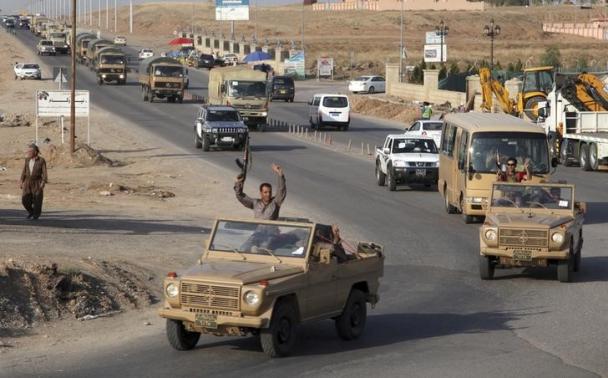
Kurdish Region President Massoud Barzani feels let down for not being invited to a global coalition meeting in London to fight the ISIS, even though the Kurds and their peshmerga have been fighting the militant group and "inflicting heavy defeats" on it.
Kurdish forces have played a major role in halting the ISIS fighters in Kobane, where the peshmerga forces have killed hundreds of "Daesh" men.
In a message posted on his official website, Barzani said, "We were expecting everyone to show respect to the sacrifices made by the people of Kurdistan and its peshmerga by inviting a representative from Kurdistan to this event and similar such events."
Barzani appeared miffed over how Iraq,Turkey and many other Middle-East countries were invited, but the Kurdish were "ignored."
"It is disheartening for us to see the people of Kurdistan make sacrifices, while others to (sic) receive the credit. The people of Kurdistan deserve to have their representative at such international gatherings to convey the views of the people of Kurdistan and its brave peshmerga," he added.
On Thursday, the US Secretary of State John Kerry and British Foreign Secretary Philip Hammond co-hosted the anti-ISIS discussions with 21 coalition member countries.
In addition to Britain, the US and Iraq, other countries whose representatives participated in the conference were Australia, Bahrain, Belgium, Canada, Denmark, Egypt, France, Germany, Italy, Jordan, Kuwait, the Netherlands, Norway, Qatar, Saudi Arabia, Spain, Turkey and the United Arab Emirates.
Since the fall of Saddam Hussein, Iraqi Kurds have organised themselves as a semi-autonomous region with their own regional government - the Kurdistan Regional Government, KRG), armed forces (peshmerga) and an oil-dependent economy.
The autonomous region's claim was further strengthened after it became a strong resistance force against the ISIS militant group.
















